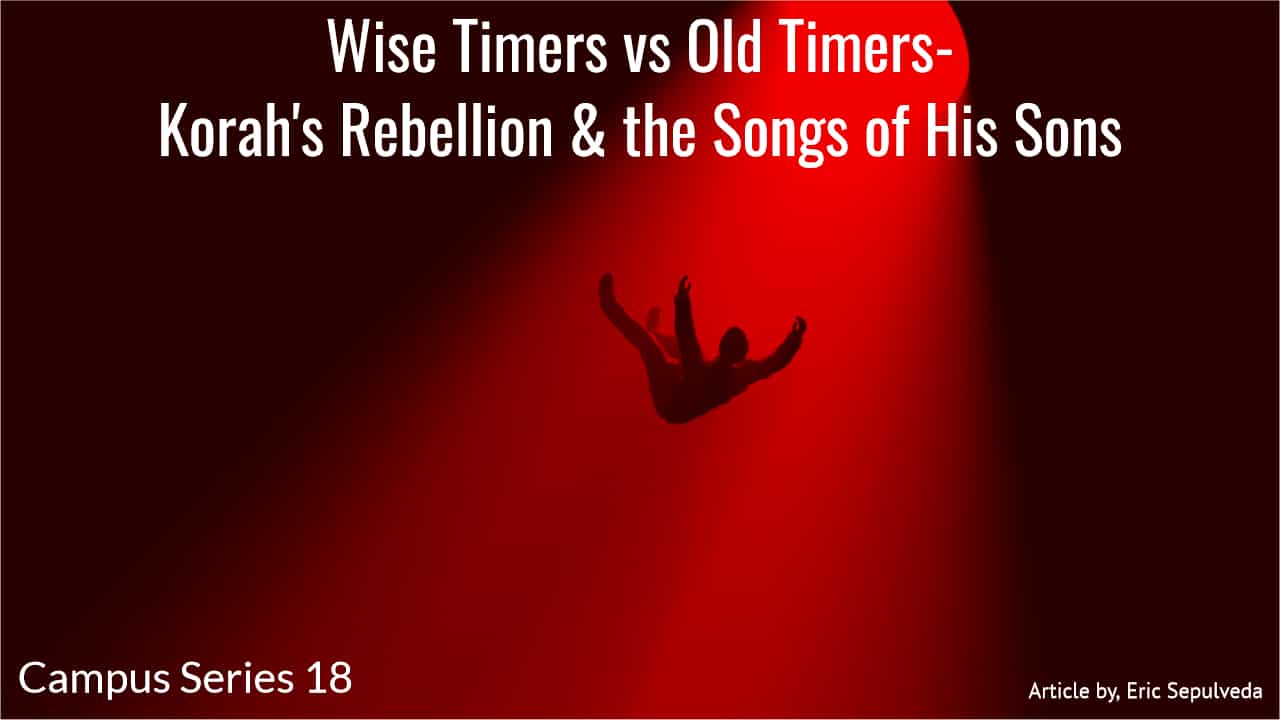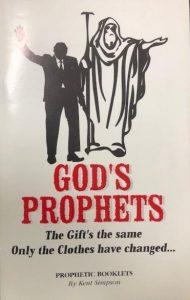
Old Timers vs Wise Timers-Korah’s Rebellion & the Songs of His Sons
After the Israelites escaped from Egypt and God gave His Laws through Moses, their hearts began to harden and their ears were closed off to God and His Prophet Moses. Korah, the leader of a mutiny against Moses, quickly discovered that his faith in human understanding and reasoning was as unstable as the ground which swallowed him and his followers.
Korah was the son of Izhar, the grandson of Kohath, and the great grandson of Levi, making him the first cousin to High Priest Aaron and Prophet Moses. Since the priestly line came from his grandfather Kohath, Korah reasoned that he and his sons had just as much right to serve as High Priest as Aaron and his sons. Korah gathered “two hundred and fifty princes of the assembly, famous in the congregation, men of renown…against Moses and Aaron” accusing that they were taking too much undue power for themselves. They argued that since everyone in the congregation was holy and the Lord was among them, they should all hold the same standing in the Tabernacle, charging that Aaron and Moses were raising themselves above the rest of the priestly class (ref. Numbers 16:1-3).
Moses challenged Korah and the rest of the Levites who had aligned themselves with the rebel to come back the next day with incense in their censers to see whose offering God would accept. It would be through trial by God’s standards, rather than man’s self-sanctification, that they would decide who was holy. Moses quipped back that it was they who were trying to take too much power for themselves (ref. Numbers 16:5-7).
Moses directly confronted Korah and his defiant fellow Levites, asking why they thought so little of the fact that God had separated them from the rest of the congregation of Israel and brought them near to Himself, to do the service of the Tabernacle and stand before the congregation to minister unto them. Despite the fact that God had brought them and the rest of the Levite Tribe closer to Himself than the rest of the other tribes, they still desired the Priesthood office as well so much, that they gathered themselves to defy God and those He had positioned over them (ref. Numbers 16:8-11).
The next day, Korah and his insurgents gathered at the door of the Tabernacle to challenge Moses and Aaron, and every man came with a censer filled with fire and incense. And the Glory of the Lord appeared unto all the congregation and the Lord spoke to Moses, instructing that the Israelites were to stay away from Korah and his cohorts (ref. Numbers 16:16-21) because God was about to punish them for their insurrection. And the ground under them gave way and the earth opened her mouth and swallowed them up and their houses and all the men that aligned themselves with Korah and all their goods. They all went down alive into the pit and the earth closed upon them. And fire came out from the Lord and consumed the two hundred and fifty men that offered incense (ref. Numbers 16:28-35).
Despite Korah’s revolt, God did not condemn his children (ref. Numbers 26:10-11; Ezekiel 18:19-20). Because they chose to listen to the Voice of their Father in Heaven instead, we see that they were given prominent roles in the Tabernacle service as well as the later Temple. They oversaw the baking in the Sanctuary, and bore the ark and the sacred furniture whenever the Tabernacle was moved.
The family’s most significant role was as the gatekeeper/porter (ref. 1 Chronicles 26:19) overseeing the entrance of the Sanctuary. Not only were they responsible for protecting the priests, they collected and distributed offerings, assisted with the slaughtering of sacrifices, and inspected both humans and sacrifices ensuring that all that entered the courtyard were ceremonially clean. While Korah wanted to be closer to God simply to attain the High Priest office, Korah’s descendants recognized through their roles as gatekeepers, that you must follow His laws before you can achieve greater intimacy and closeness with Him.
Korah’s lineage was listed among David’s mighty men (ref. 1 Chronicles 12: 1-2, 6), but not all were armed with physical weapons. When King Jehoshaphat went to war in the name of God, the Korahites stood up and praised the Lord, God of Israel, with a very loud voice. King Jehoshaphat appointed these men to stand ahead of the army as the spearhead and sing and praise the Lord as they entered battle, leading to a massive victory over the Moabites and Ammonites who killed each other in confusion (ref. 2 Chronicles 20:19-24).
Heman, the first of the three Levites appointed to lead the vocal and instrumental music of the Temple during David’s reign (ref. 1 Chronicles 6:31-33; 15:16-22), was the grandson of Prophet Samuel, both descents of Korah. The Sons of Korah are out rightly recognized for their contribution of Psalms (Psalms 42, 44, 45, 46, 47, 48, 49, 84, 85, 87, & 88), which were heavily influenced by their ancestor’s infamous showdown and ultimate destruction.
The often quoted and sung Psalm 46: “God is our refuge and strength, a very present help in trouble” continues that “we will not fear, though the earth be removed” and when describing the Power of God, when “He uttered His voice, the Earth melted” are both obvious allusions to the earth swallowing up Korah and the rest of his rebels (ref. Psalm 46:1-2, 6).
Psalm 84 declares that “For a day in Your Courts is better than a thousand. I would rather be a doorkeeper in the House of my God than dwell in the tents of wickedness” (Psalm 84:10) alludes to their current office as Doorkeepers and how Korah’s family only survived by fleeing their wicked father’s home before it was consumed by the earth.
Despite God not cutting off Korah’s lineage, his family suffered for his actions and were held in association with him despite resisting his rebellion. Psalms 88 reveals that they were “counted with them that go down into the pit,” which “pushed [their] friends far from [them] and made [them] an abomination in their friend’s eyes” and the singer feels as though they are “trapped and cannot come out”.
Korah tried to establish his own definition of who and what was holy and in a great example of God’s forgiveness, He gave Korah’s sons the office of Doorkeepers of the Tabernacle, assessing whether things met God’s standard to be able to enter. In another example of irony, the unteachable Korah who hardened his heart and closed his ears to God’s Voice, had sons who would lead praises to God, and write emotionally charged songs to teach others through worship.
Korah believed that his ideas concerning the priesthood were superior to what God laid out, but his family had the wisdom to recognize that God’s logic is greater than man’s. Their willingness to leave their earthly father’s philosophies for their Heavenly Father’s Voice gave them opportunity to help others align with God’s expectations and march and move to the rhythm that He set for His People.
Are you in sync with Him and where He is leading us today?
Prepared by, Kent Simpson, Apostolic Prophet & Eric Sepulveda, PMT Administrator
For more prophetic media groups click here


